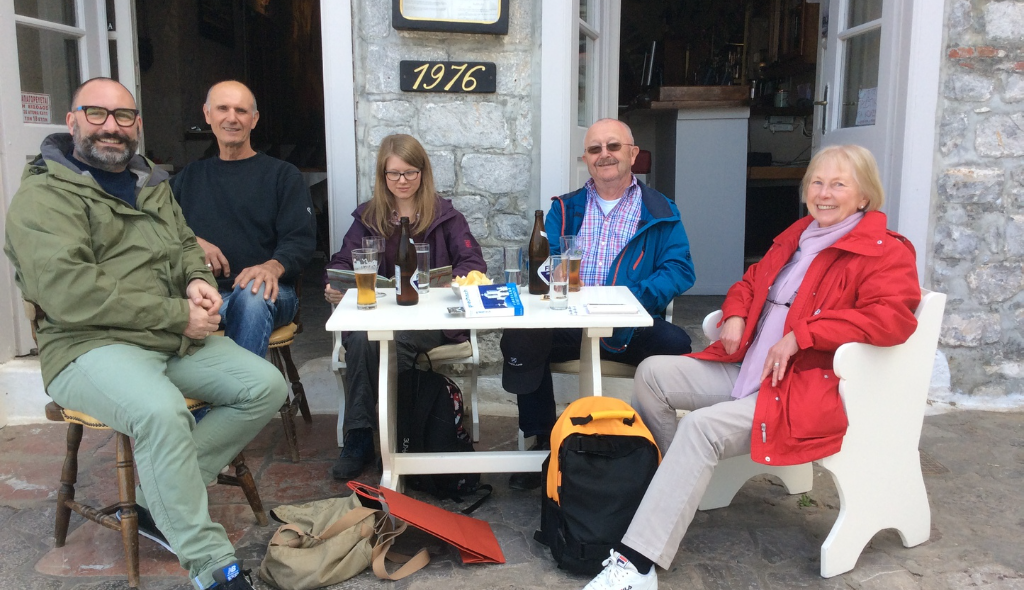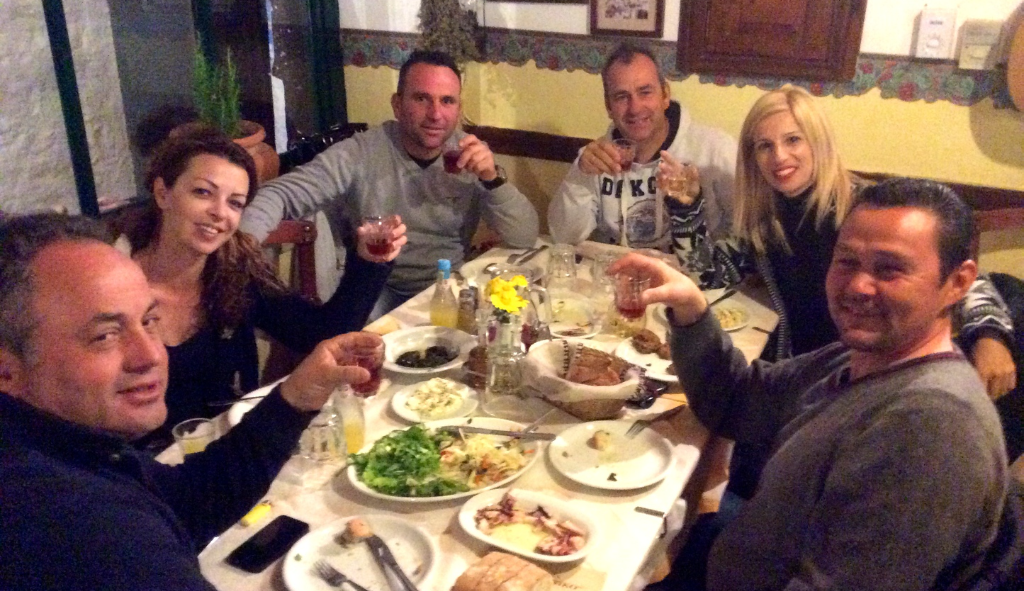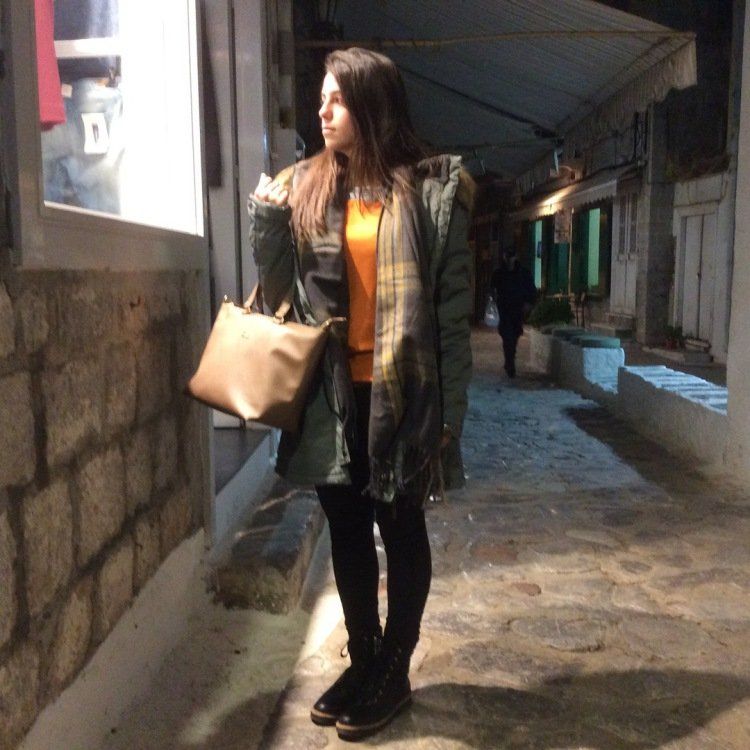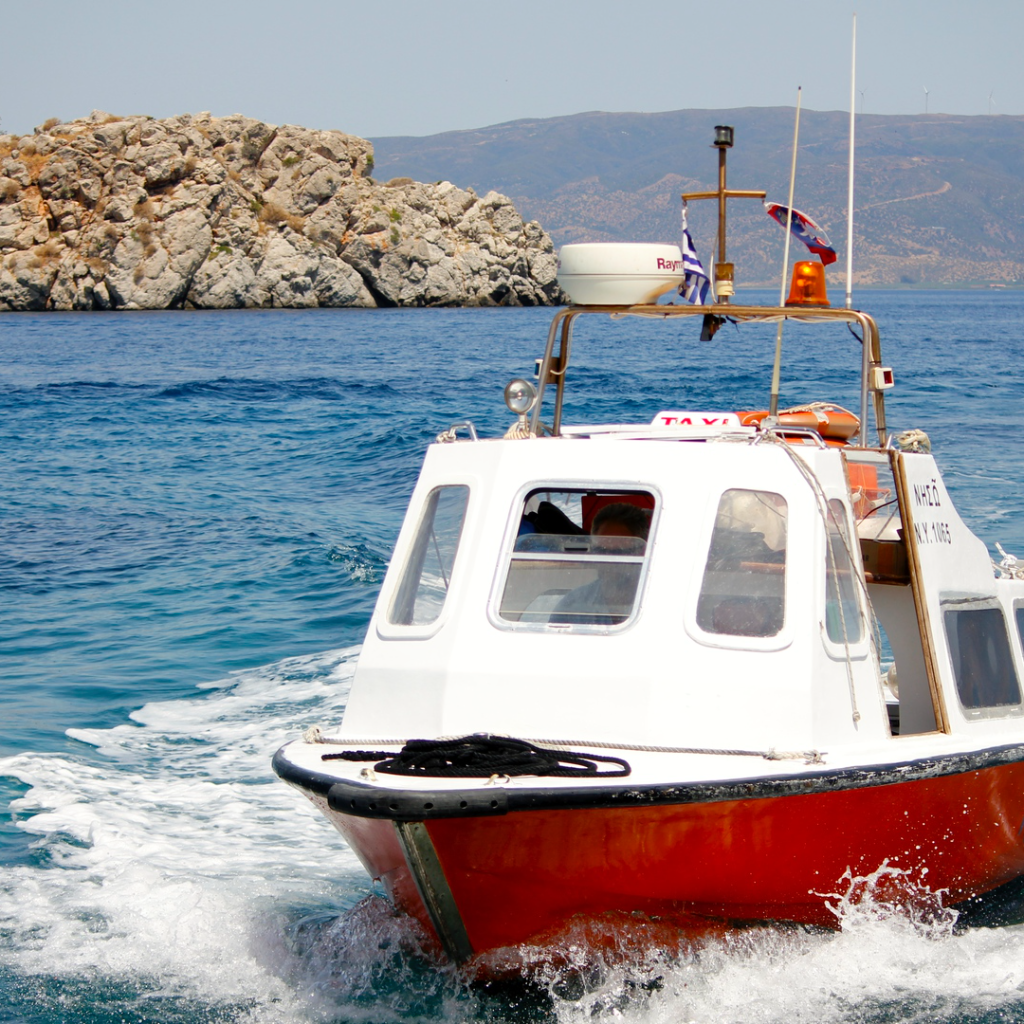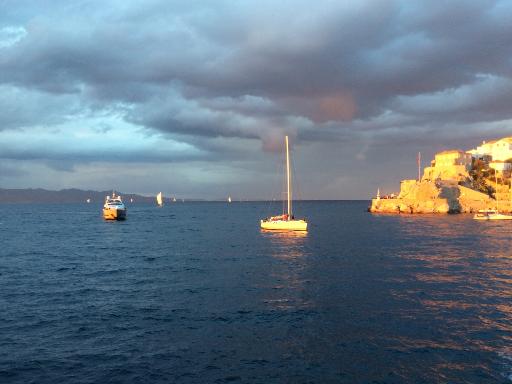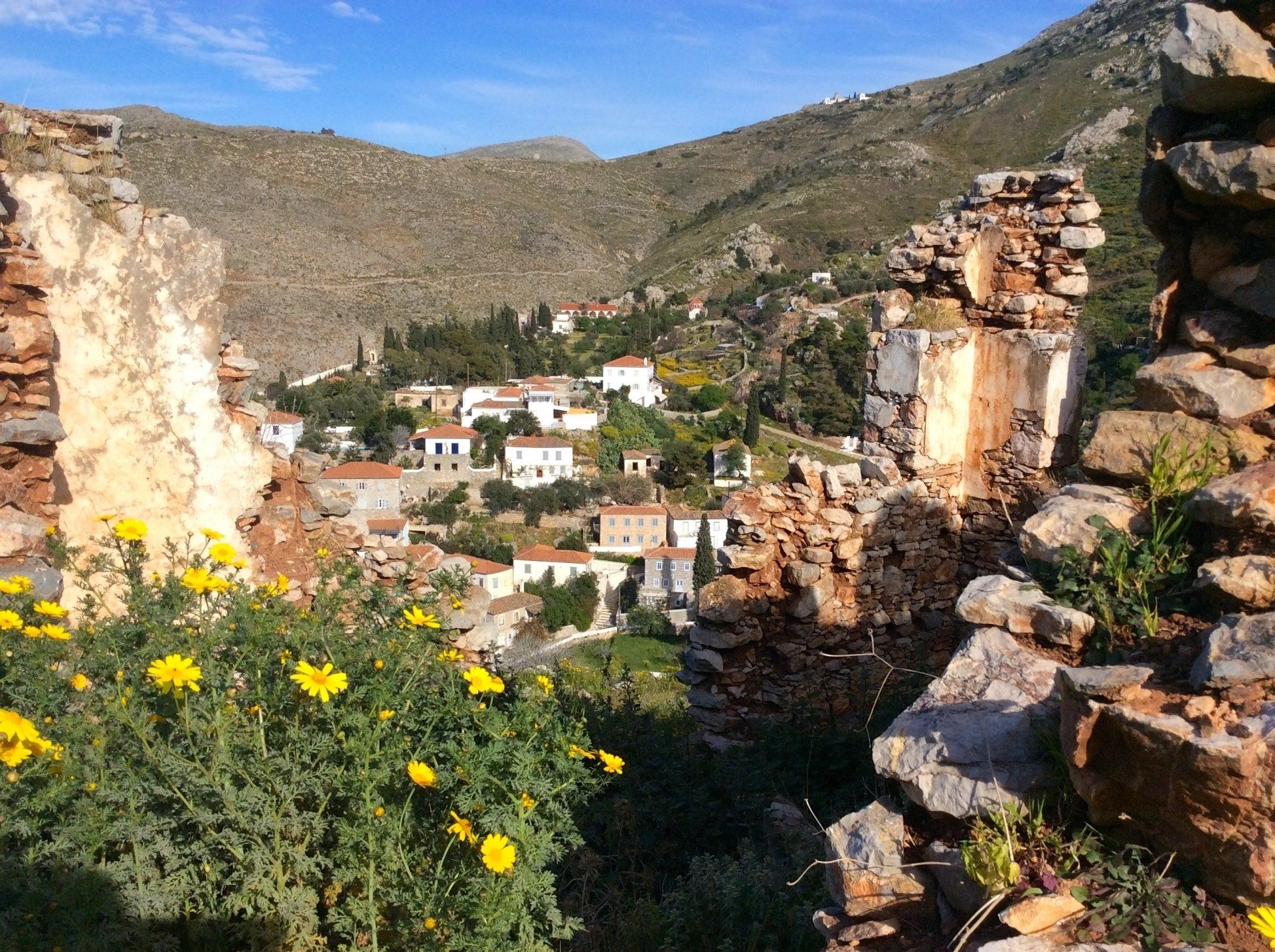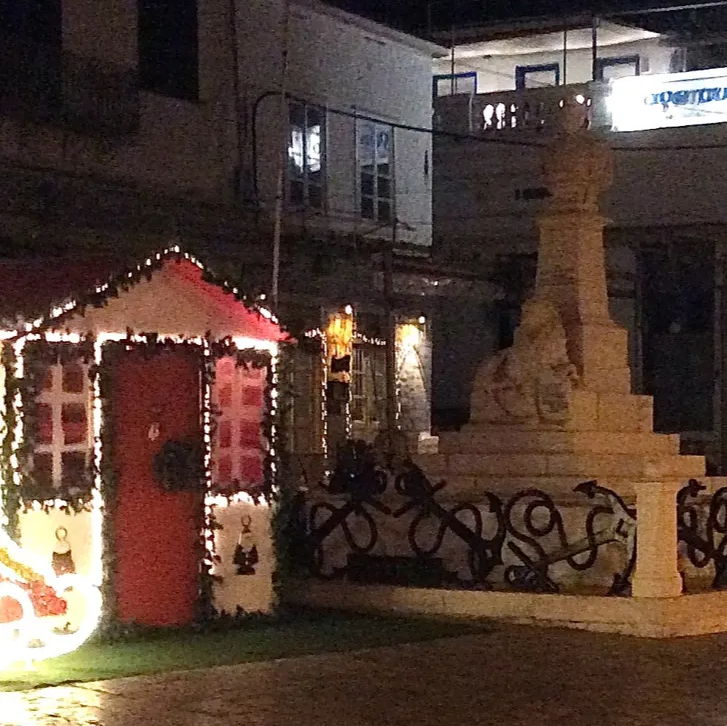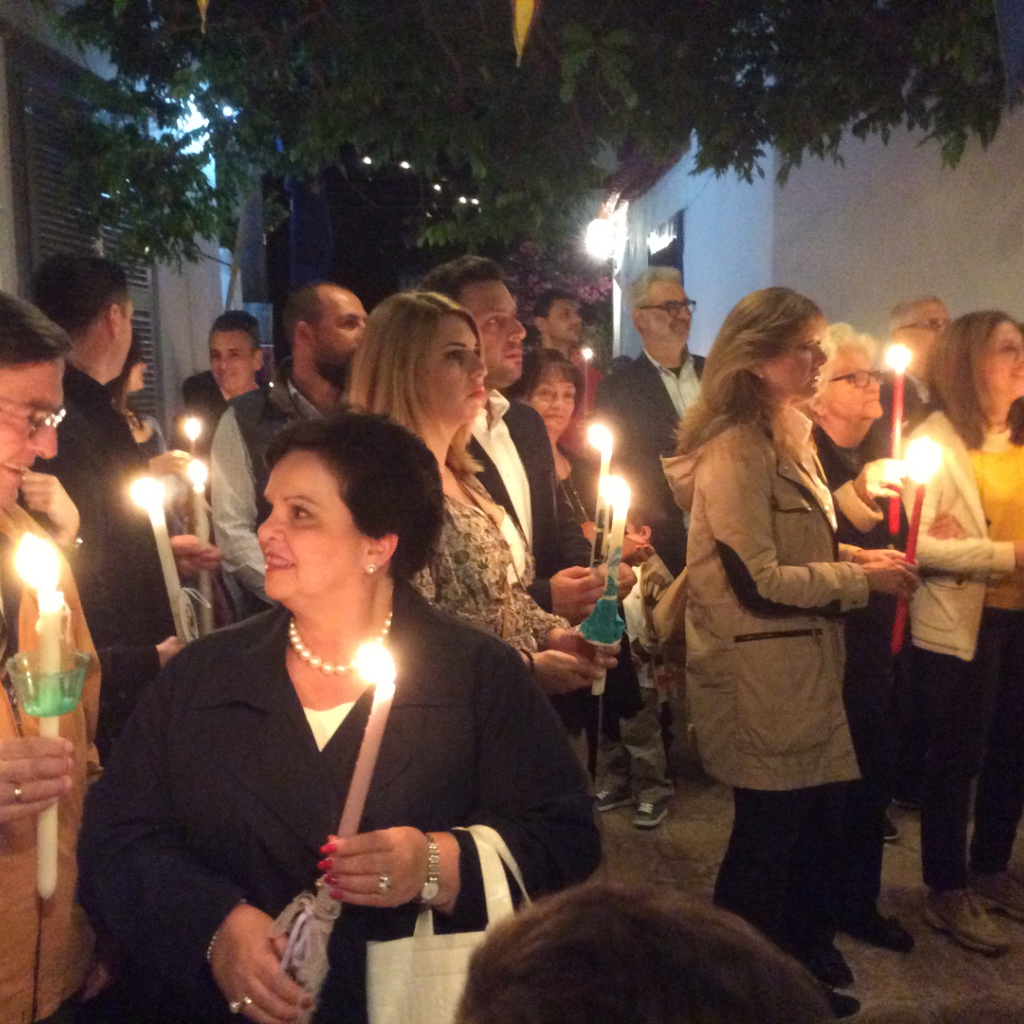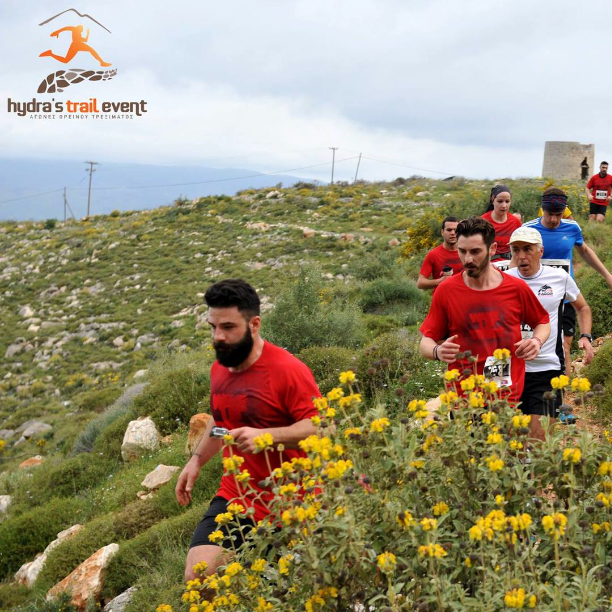Winter Holidays on Hydra Island
A Greek Island winter holiday is not something you might immediately think of, but here is why you might consider an off-season, winter holiday on Hydra Island.
In my opinion, the winter off-season on Hydra Island is the best half of the year. It's relaxed and more laid back and without the pressure of so many visitors it reverts to the gentler, softer place which is what I most enjoy about living here. Visitors who only ever come during the summer really don't know what they're missing.
All the photos shown on this page were taken between October to April.
Relaxing With The Locals
The island's residents start to unwind and smile knowingly, gleefully greeting each other during October with the phrase "see you soon". The anticipation of eighteen hour working days, with no weekends off, coming to an end with the summer, is just around the corner!
The off-season is when Hydriots have time not only for each other but also to welcome visitors as friends and to get to know them even better. The off-season and winter atmosphere is reminiscent of the 60's and 70's when the island was less touristic and more informal.
Winter Essentials
Because the three-island-cruise boat visits throughout the winter, the island still gets an influx of daily visitors which keeps most of the shops open until the day-trippers depart. Obviously the supermarkets, butchers and bakers are open daily as are the banks so that this thriving community can function. And both the island's hairdressers are open so everyone can be pampered. See Shops & Services.
Some of the owners of restaurants, hotels, guest houses and holiday-let house owners live permanently on Hydra (that is,. they are families with children in the island's schools). So they tend to stay open during most of the off-season except for a few weeks when they take their own holidays.
It means that Hydra never really closes.
What to Expect From The Weather
Expect a little of everything. The weather is mild although changeable and the countryside bursts with colour and fragrance makes walking blissful after the searing heat of the summer.
Often the still frequent bright sunny days entice people to swim from the almost deserted beaches. Yes it does rain, but unlike Northern European countries, it rains torrentially in one hit without endless grey months of drizzle. You can easily go for a walk in bright morning sunshine but have to take shelter from the rain in the afternoon!
Temperatures from November to March can range from 2 - 20 degrees. It very rarely gets cold enough for snow. But the wind, especially if it is northerly, can be quite chilly. The cobble stones in Hydra town and along the harbour seem to 'bleed' dampness during the winter and can be quite slippery so you need to be careful walking. The trick to avoid slipping over when you walk is to step on the concrete between the cobbles. Please see What To Pack for more 'survival tips'!
Wonderful Winter Colours
For artists and photographers the weather transforms the appearance of the island and it becomes even more photogenic with rapidly changing light, bursts of colour not seen during the summer and the clouds cast shadows that create dazzling multi-coloured sunsets. There are even days when the air is so clear that it appears as though someone has pulled the mainland closer so you can see the Peloponnese houses and roads.
Out & About
From October - March whilst the beaches may be deserted because the beach boats are in dry-dock (an even nicer time to visit them if the sun is shining), the countryside of Hydra becomes the favourite places of walkers, hikers and riders. Even elderly 'yayas' (grandmothers) take to the hills to collect 'horta' (wild therapeutic greens) and mushrooms. With a couple of days notice it's possible to hire a boat for those who want to be out on the water. And the island's amateur theatre group have time during the off-season to rehearse and perform their winter play for islanders and visitors to enjoy.
Horse Trekking
Harriet's Hydra Horses is a horse trekking company offering countryside treks for all levels of experience and ages. Comfy western saddles and always with safety helmets.
Walking & Hiking
With no cars on Hydra, everyone walks everywhere. And hiking during the winter if you want to go to the furthest beaches is a must as the beach boats no longer run.
What's On
Hydra is never closed as some of the Greek Islands are. It's a living community with year around interests. The island's children go back to school, the Greek Orthodox Church continues to mark the months with the special services and regular observances that are the heartbeat of Hydra. This close-knit community visibly unwinds and becomes more sociable. Families, who hardly see each other during the summer, gather to eat and drink or take part in community events which is impossible for them to do during the high season because they were running their businesses.
28th of October
The end of the high season is marked by the yacht races and the celebration of Ochi Day.
14th of November
St. Konstandinos is the Patron Saint of Hydra and on this day there are church services and a procession from the top of the hill to the town.
Christmas & New Year
This time of the year is less commercial than you'll find in the rest of the world. Hydra bucks the trend as the school children greet Father Christmas who arrives at the end of term on a donkey!
6th of January
Everyone hopes for sunny weather at least for Epiphany when the youngsters of Hydra dive into the chilly water of Hydra harbour to retrieve the cross thrown in by the priest to bless the sea.
Carnival
Carnival is held in the early spring a month or so before Pascha so the date changes each year. Independence Day is always celebrated on the 25th March
Pascha (Easter)
The Greek Orthodox Pascha (Easter) is the biggest event in the religious and holiday season for all Greeks. So you will need to book well in advance if you're intending to join the celebrations on Hydra.
Winter Sports
Hydra's Trails Event
Annually held in April this is a hugely popular event with both the international competitors and supporters
Football
Hydra has a very active and well placed league football team who play away and host games at the Stadium on Sunday's throughout the football season.

